Piano students, parents, teachers and commentators start your engines. The metronome is ticking while the piano students rock back and forth on their benches anxiously waiting to play the piano. The tension is rising and the anticipation overwhelming. This is the performance of their lifetime. But what if they aren't prepared? What if they haven't practiced? Performance is a reflection of one's practice. If you would like to improve your piano playing, you must practice. Professional performers are just that - they perform because they've practiced and perfected their practices. I want every music student to practice like a performer. Pretend like you are a concert pianist or professional rock star. Many professionals practiced their songs thousands of times before they even had one concert. Have you played though your songs a thousand times? I would like to make some suggestions for practicing the piano. Unless you practice to perform you will not have effective practices. The practices must be well thought out and planned. Detail is a very important part of daily practice.
1. Practice for at least 30 minutes every day. Students who are just beginning must practice for at least thirty minutes every day. Make this a habit. Plan and prepare for your daily practices. Set aside the same 30 minute spot every day for practicing. If you do it at the same time every day it becomes a habit. It becomes second nature. If you don't practice the piano, you will not improve. If you have been playing the piano for at least 2 years, you must practice at least 45 minutes everyday (and realistically it should be an hour a day).
2. Practice until the piece or exercise is as perfect as you can make it. This may mean you need to practice more than 30 minutes on some days. Don't be afraid to practice. Don't worry if you make a mistake in your practice. That is what a practice is for. Mistakes just mean you're closer to improving. Even the greatest composers and concert pianist have made mistakes (and many still do) when they play. Don't worry about not playing a piece correctly. You should be more worried about not playing the piece at all than not playing it correctly.
3. Set annual, monthly, weekly, and daily goals with your music teacher. Every week you should carefully set and reach realistic goals about your piano playing. Goals are the greatest influencing factor in becoming better at the piano. If you have goals about playing the piano you will improve at the piano. If you don't have goals about playing the piano you will not improve. Make your goals personal. Your teacher can help you understand what you should do to practice and how you should practice, but only you should set your goals. They are your goals. Your teacher cannot and should not set your goals for you. Initially, your goal may be very broad and general. You may say something like "I want to be a rock star one day". You may say "I want to teach music when I grow up", "I want to be a concert pianist", "I want to compose and arrange music", "I want to play the piano at church," "I want to play jazz music or any other kind of music" or "I'm learning the piano first because I want to learn another instrument and my parents want me to learn the piano before my other instrument". You may simply say, "I just want to be able to sit down and play some songs on the piano". What you may not say, however, is that you are only taking piano lessons because your parents are making you. No one can make you do something you don't want to do. If that is the case, your parents are forcing you to go to piano lessons once a week, but they are not making you play the piano. You are refusing to play the piano and as a result you do not progress and your parents pay money to see you procrastinate your piano playing. Decide what you want to do with the piano and go for it. Create an outline with your teacher and work together to achieve your goals. Without goals you have no direction and will never progress.
4. Practice word for word what your music teacher wants you to do. If the music teacher asks you to play a particular exercise in every single key, that must happen everyday. When you practice the piano you should focus on 5 primary areas.
They are (1) Music Theory, (2) Music Technique, (3) Music Repertoire, (4) Music History, and (5) Music Mastery.
Music Theory is paramount because without it we can't fully understand what music is. If we don't know what music is how can we effectively practice it, perform it, master it, and enjoy it? Music Theory helps us understand how to read music. Music is a language and the theory helps us understand what the words mean, how to create them, how to conjugate them, how to abbreviate them, articulate them, add specific meaning to the words by how we pronounce them, and an overall understanding of how to effectively communicate with others through the medium of our musical vocabulary. When we understand the theory of music we connect with our audience who listens to everything we say musically with their hearts and souls. Our music touches them because we are in touch with the fundamental components of the musical language.
Music Technique helps us express what we have learned to say. Once we understand how to read musical symbols, dynamic markings, articulation markings and so forth, we know what we're reading and in many cases can effectively convey to others what we've read, but until we understand what the artistic techniques are and how to use them, we can't effectively communicate with someone else. It's as if we've learned how to speak Latin but we do it with a southern accent. People may understand what we say, but we don't sound as natural or as authentic as someone who learned that language as their primary language. For them it is second nature. For us it may take a second to understand the nature of the vocabulary because it is not our primary language. We must learn technique.
Music Repertoire helps us enjoy the journey of our musical experience. We play familiar pieces written by familiar composers and we get excited playing well known pieces for our friends and families. They recognize the music and have already connected with the songs. They have personal experiences, memories, and feelings for the music which helps them appreciate it and makes us want to play them. Music Repertoire helps us continue practicing the piano.
Music History helps us realize the development of music. When we understand how music was first created, who invented which instruments, and why various composers have written the music they have, we connect with them. We appreciate what the great musicians of the past have done and what current musicians are doing. We connect with them and they connect with us through their music.
Music Mastery helps us make music a part of our lives. Music students can be taught to read notes on a page, to understand rhythms and rests, to effectively sightread and play beautiful music, but until they make it their own, they are simply repeating what others have repeated before. When musicians can create, arrange, compose, and generate new musical masterpieces that is when the musical world expands and they become part of music history. To take concepts taught about music theory, music technique, music repertoire, and music history and make or create something of our own moves us into music mastery. This is where we give back to the great composers who have come before us.
Written by Jerald M. Simon
Copyright © 2008 Music Motivation®
All Rights Reserved
Monday, September 22, 2008
Subscribe to:
Post Comments (Atom)






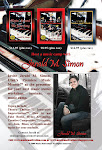.jpg)




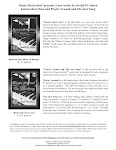
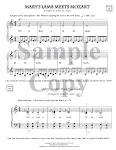
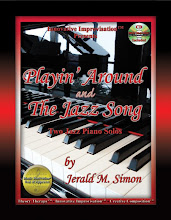
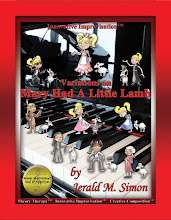+latest+and+greatest+flattened+(smaller+size)+rgb+mode.jpg)
.jpg)
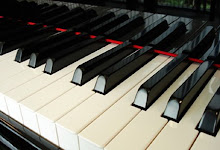

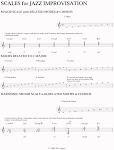
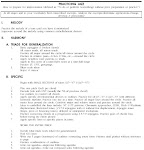


































.jpg)
No comments:
Post a Comment